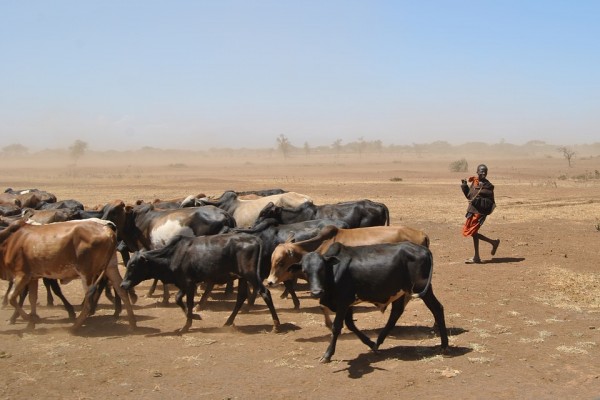By Ana Verayo, | November 15, 2016

Drought and other extreme weather events will continue as 2016 is set to be hottest year on record. (Pixabay)
A new report from a United Nations agency says that 2016 is set to be the hottest year on record as global temperatures continue to rise.
According to the World Meteorological Organization, average temperatures for this year were significantly higher than last year and 2015 was the hottest year to date.
Like Us on Facebook
According to WMO Secretary -General Petteri Taalas, record high temperatures in 2015 are set to be beaten in 2016. However, extra heat from the powerful El Niño event has dissipated, but this heat from global warming will continue.
Previous data suggests that global temperatures will increase by an average of 1.2 degrees in 2016 compared to pre-industrial levels. Just to get an idea of how significant the rise in temperatures has been this year, temperatures recorded from January to September this year saw an average increase of 0.88-degree above the average 14-degree increase between the years 1961 to 1990.
WMO scientists say that some of the hottest years on record occurred in the 21st century.
Even if some of these record hottest years were caused by additional heatwaves from El Niño weather patterns, scientists say that climate change has also caused temperature spikes.
Scientists say that the amount and kind of concentrations of greenhouse gasses in the Earth's atmosphere are continuously increasing and this phenomenon can set new hottest year records. Arctic ice is also setting new records. Ice sheets were at their lowest levels in October 2016 as the Greenland ice sheet showed unusual early signs of melting.
Also, WMO scientists say that the most destructive weather event of the hottest year to date was Hurricane Matthew, which is a category 4 storm, that hit Haiti and Florida last month. Taalas said that these extreme weather events are the result of rising temperatures from climate change, making droughts, heat waves, and flooding more common than ever.
The WMO supports the Paris Climate Agreement that aims to mitigate the effects of climate change. Nations all over the globe have agreed to do their part in keeping with this global commitment to seek other renewable sources of energy and lessen industrial carbon footprint.
-
Use of Coronavirus Pandemic Drones Raises Privacy Concerns: Drones Spread Fear, Local Officials Say

-
Coronavirus Hampers The Delivery Of Lockheed Martin F-35 Stealth Fighters For 2020

-
Instagram Speeds Up Plans to Add Account Memorialization Feature Due to COVID-19 Deaths

-
NASA: Perseverance Plans to Bring 'Mars Rock' to Earth in 2031

-
600 Dead And 3,000 In The Hospital as Iranians Believed Drinking High-Concentrations of Alcohol Can Cure The Coronavirus

-
600 Dead And 3,000 In The Hospital as Iranians Believed Drinking High-Concentrations of Alcohol Can Cure The Coronavirus

-
COVID-19: Doctors, Nurses Use Virtual Reality to Learn New Skills in Treating Coronavirus Patients







